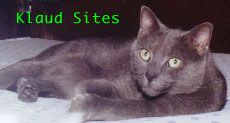
 |
Klaud's Sites |
| What if everything you were taught to believe as true turned out to be just another cultural myth? What if things that seem to be certain, with out a doubt, are seen as falsehoods in other cultures? What if the unquestioned assumptions behind the truths were false, or at least variable from culture to culture? What if simply asking the questions took the certainty away from your truths? What if the absolutes could all be different? What if growing up involved recognizing that all your cherished beliefs were just childish notions? Wouldn't you want to at least ask? | ||
Getting Over The Simple Myths |
||
| This all leads us to attitudes that are more mature, more scientific, and more spiritual. We realize that things do NOT have to be this way. There is more than one "truth." There are more than two sides to any story. Things are not as simple as any of the ideas we have been taught. | ||
Recognizing What we Don't Know |
||
| Sometimes knowing what is not true is more important than knowing what is true. Sometimes knowing what should not be done is more important than knowing what should be done. Sometimes recognizing what we don't know is more important that knowing. Even knowing what your own religion's scriptures don't teach is of value. | ||
| The American Constitution was based on the understanding of what power each branch of government should not have. The Gridlock Party (2)takes this concept one step further. Spirituality may result from knowing what "god" in not, and just accepting the mystery. Perhaps, we first need to consider what it really means to "know God." Then we can accept the consequences of the limits to our knowledge of the Divine. | ||
The Truths of our own Culture may be just our Myths |
||
|
We Americans believe so strongly in our culture that we believe we have have the right to use force to impose our ways on others - "for their own good." But is our culture even working for us? Perhaps we would be happier if we imported a culture of simplicity. We tend to think in terms of right vs. wrong, true and false, Right vs. Left. Perhaps this thinking is just tragically unbalanced. Much of American thinking is based on property. We all believe in ownership, and property rights. But have we ever thought thorough whether we can truly own something? We all believe in fair and just compensation. We believe that our economy is based on fair wages. But do we know what that would be; or whether it is even really possible? From this it follows that we might ask what makes for a fair and just minimum wage? Or do we even know how to create a fair taxation? Do we really want fiscal conservatism? |
||
Sometimes humor tells more truth than news |
||
 |
Other Observations
***This site will be dedicated to challenging common myths, typically seen as "truths" for the culture that believes in them. We plan to touch on all the popular taboos and obsessions of American culture, including: religion, politics, and economics. We will welcome suggestions for links. We may accept essays which challenge American myths.